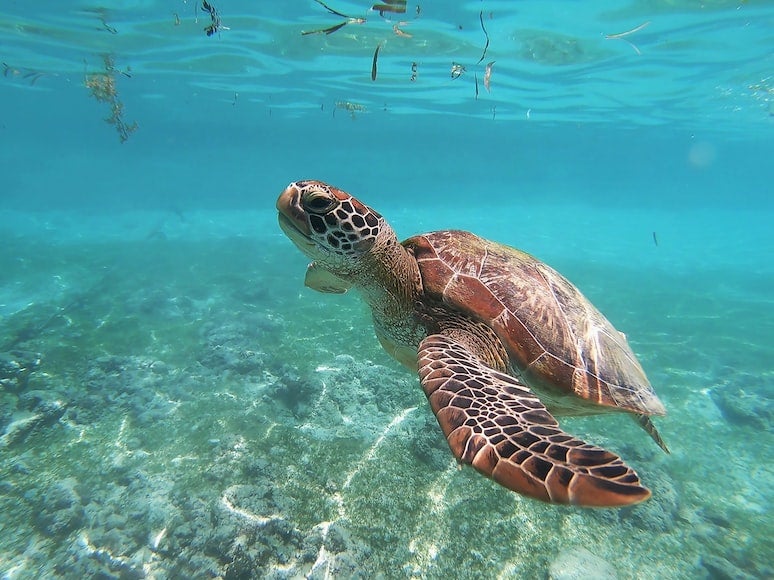Mozambican conservationists concerned as sea turtles found dead in protected area
All five species of turtle in Mozambique’s waters are protected but human activities are decimating populations

Your support helps us to tell the story
From reproductive rights to climate change to Big Tech, The Independent is on the ground when the story is developing. Whether it's investigating the financials of Elon Musk's pro-Trump PAC or producing our latest documentary, 'The A Word', which shines a light on the American women fighting for reproductive rights, we know how important it is to parse out the facts from the messaging.
At such a critical moment in US history, we need reporters on the ground. Your donation allows us to keep sending journalists to speak to both sides of the story.
The Independent is trusted by Americans across the entire political spectrum. And unlike many other quality news outlets, we choose not to lock Americans out of our reporting and analysis with paywalls. We believe quality journalism should be available to everyone, paid for by those who can afford it.
Your support makes all the difference.By Omardine Omar for Integrity Magazine
A second adult turtle was found dead on the island of Ibo, in the area of Mozambique’s Quirimbas National Park last Friday morning. Local activists from an Association for Monitoring and Management of Marine Resources (ASMOG), suspect that she was killed as a result of human action, rather than being dragged in by sea currents, as initially proposed.
On Saturday, the carcass was incinerated, after communication from the inspectors of the Quirimbas National Park and the local administration, that consumption of its meat by local people was not allowed.
This is the second incident in around two months where a turtle has been found dead under unknown circumstances on Ibo island.
This has once again raised the debate on the effectiveness and commitment of the conservation authority personnel in the conservation area, who have also failed to take action in cases of irregular fishing practices.
ASMOG has highlighted that park rangers do not take measures to stop the use of non compliant fishing nets.
It should be noted that the death of turtles in Mozambique has always concerned national and international organisations, such as WWF Mozambique, which a few years ago denounced the ongoing indiscriminate killing of sea turtles in the Quirimbas National Park.
The findings resulted from daily data collection by ASMOG Community Agents, who were trained under the WWF’s Bengo Project for the conservation of marine species in Mozambique in 2019. For example, within four days of monitoring, seven cases of green and olive turtles were killed in places such as Canal de Menfuvo, Okaya and Pengueleze (on Matemo Island) and Paloco (Ibo Island).
But the most shocking case was recorded a few days later when two Ibo agents, Anli Manchude and Insa Amisse, on a routine patrol found shells, organs and heads of three turtles of unidentified species, freshly killed in Paloco, a place also known as a sea turtle cemetery.
The organs, heads and bones were scattered across the site and the meat had been completely separated from the bones and shells and taken by the offenders.
Still in Paloco, dozens of remains of old shells and bones were also found, which indicates that the area had been used to conceal the killing and remains of sea turtles.
At the time, around 45 turtles were registered in the PNQ, which were killed within the park area, in places such as Palanguezi, Bassuara and Paessura, in the District of Quissanga and Quirimba, Ibo, Senkar, Mefunvo, Matemo, Arimba and Guludo.
This article is reproduced here as part of the African Conservation Journalism Programme, funded in Angola, Botswana, Mozambique, and Zimbabwe by USAID’s VukaNow: Activity. Implemented by the international conservation organization Space for Giants, it aims to expand the reach of conservation and environmental journalism in Africa, and bring more African voices into the international conservation debate. Written articles from the Mozambican and Angolan cohorts are translated from Portuguese. Broadcast stories remain in the original language.
Read the original story here:
Join our commenting forum
Join thought-provoking conversations, follow other Independent readers and see their replies
Comments